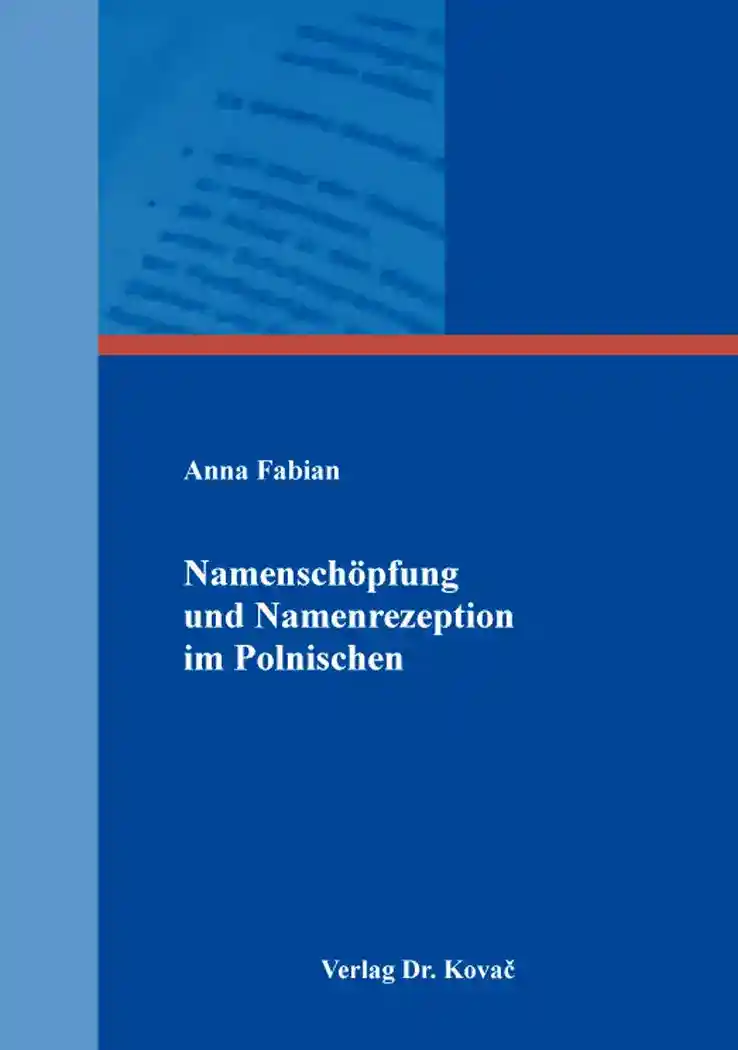Anna FabianNamenschöpfung und Namenrezeption im Polnischen
Studien zur Slavistik, volume 50
Hamburg 2020, 302 pages
ISBN 978-3-339-11642-0 (print)
ISBN 978-3-339-11643-7 (eBook)
Rezension
[…] Die von Anna Fabian vorgelegte Arbeit ist gekennzeichnet von einer umfassenden (kritischen) Darstellung und Reflexion der zugrundeliegenden Theorie sowie durch den originellen Ansatz, erfundene literarische Namen zum Studienobjekt zu machen. Schade, dass die durchgeführte und von ihrem Ansatz her so wohldurchdachte Online-Befragung nicht die Resonanz fand, die sie verdient gehabt hätte.
About this book deutschenglish
While the naming of persons or places is governed by more or less explicit rules and traditions, there are other areas in which many new names with a highly creative potential arise. Among these are doubtless literary names, which do not only designate new referents, but at the same time help to constitute the literary world. The example of newly produced names in Polish fantasy literature serves to examine name creation and name perception from a linguistic point of view: which means of language are used to form new names, and which mental models of proper names are available to speakers?
A first, corpus-based analysis compiles a classification of the methods for the production of new names. On the one hand, it shows parallels to regular word formation in Polish and the known and established paths of name formation, but on the other hand, it becomes obvious that other, additional methods are productive, which are used to varying degrees as needed. This classification should be understood as a tool for further onomastic analyses.
Following a change in perspective from name creation to name perception, the results of an analysis based on psycholinguistics are presented. It is shown that not only specific and differentiated mental models of proper names exist, but also prototypical concepts of onymic structures and their functions. Beyond that, it becomes clear that speakers intuitively distinguish proper names from other nouns, which means that they possess the status of a distinct class in the mental lexicon.
